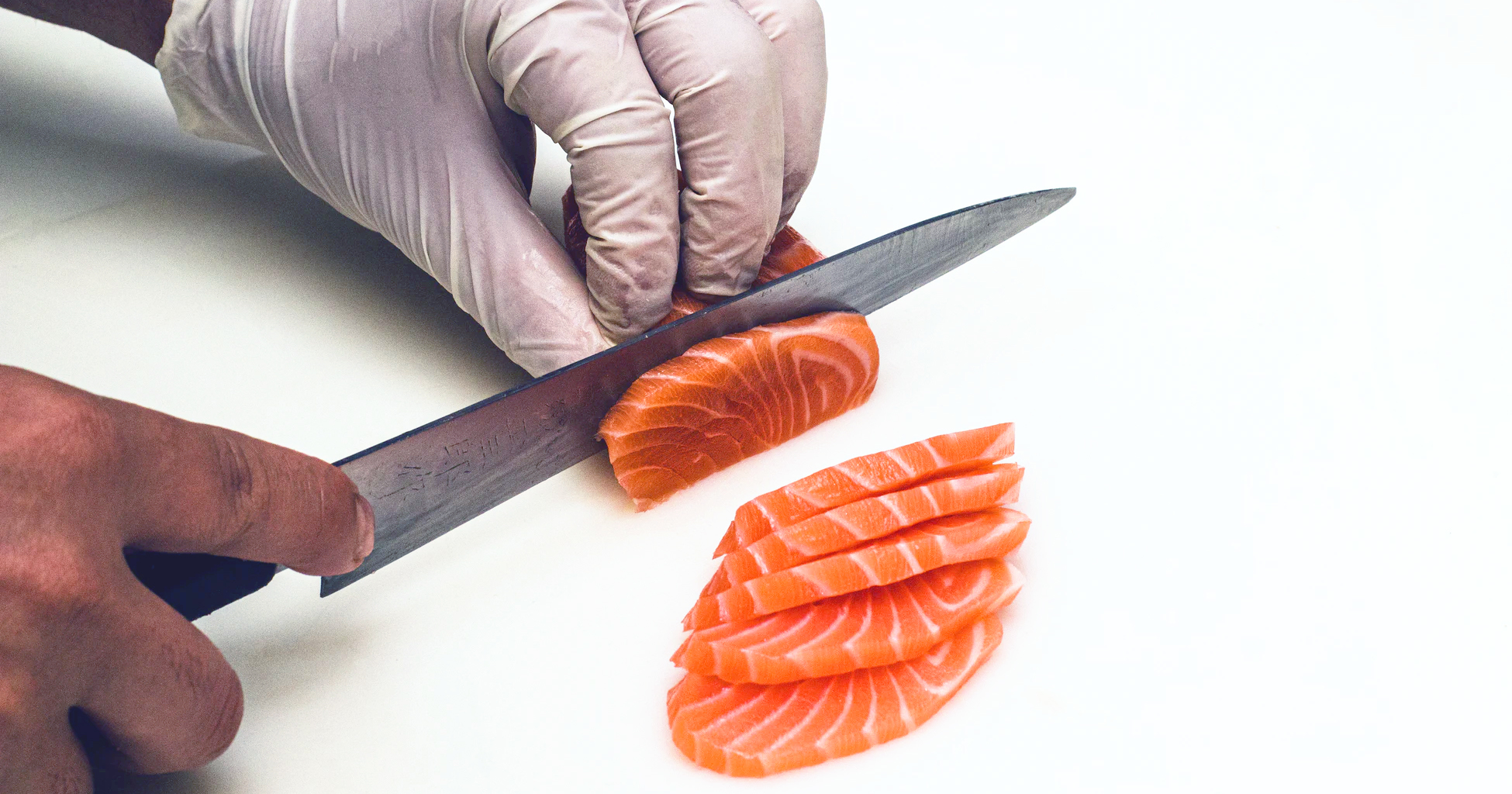Coronavirus that causes Covid-19 can survive for more than a week on the surface of chilled fresh salmon, a team of Chinese researchers has found.
Kept at a temperature of 4°C, the virus remained infectious for eight days, South China Morning Post reported.
At 25°C, considered regular room temperature, the virus remained on the salmon for two days.
Sars-CoV-2 is the official name for the virus.
How was experiment conducted
The researchers bought the fish from a shop in Guangzhou.
The meat was cut into small cubes and combined with the viral particles in a solution.
The infected meat was then stored at different temperatures.
A sample was taken for a test each day to see if the virus could infect normal cells.
The hypothesis so far is that the virus can survive longer in lower temperatures but it remains unknown if the meat can remain infectious.
The Chinese scientists, led by Dai Manman, associate professor with the South China Agricultural University in Guangzhou, wrote in a non-peer-reviewed paper published in biorxiv.org on Sept. 7:
"Under such condition, contaminated fish from one country can be easily transported to another country within one week, thus serving as one of the sources for international transmission."
Implications
Salmon can be transported around the world within a few days.
This discovery has heightened fears that food can be a source of international transmission.
Chile's fishing authority previously said in 2019 that salmon could reach Shanghai in two-and-a-half days.
Outbreak originated from market
The initial outbreak in Wuhan and a spread in Beijing in June 2020 have been associated with wet markets that sold seafood.
China temporarily halted salmon imports in mid-June after the virus was found on salmon chopping boards at Xinfadi market, the centre of the Beijing outbreak.
Authorities later ruled out salmon as the source of transmission.
The cases in Wuhan and Beijing created "concerns that fish or meat-attached SARS-CoV-2 could be a potential source of Covid-19 transmission," wrote Dai.
This link motivated the study.
China importing large quantities of food
China, one of the largest markets, imported about 40,000 to 100,000 tonnes of salmon each year before the pandemic, according to various estimates from the fishing industry.
Chile, Norway, Vietnam and Australia are the largest sources of salmon.
Coronavirus in numerous imported frozen food products, ranging from shrimp to chicken wings, have been detected by authorities in China since the outbreak began.
Consumption of salmon and other imported seafood in China dropped sharply after the outbreak in Beijing in June, according to mainland media reports.
Other notable persons involved in study
Fudan University virologist Jiang Shibo, an editorial consultant for The Lancet journal, supervised the experiment.
Professor Liao Ming, director of the laboratory of prevention and control of animal diseases at the Ministry of Agriculture, was also a co-author of the study.
We deliver more stories to you on LinkedIn
Top photo via Unsplash
If you like what you read, follow us on Facebook, Instagram, Twitter and Telegram to get the latest updates.
